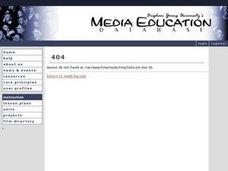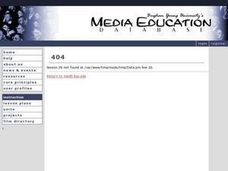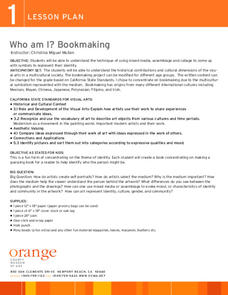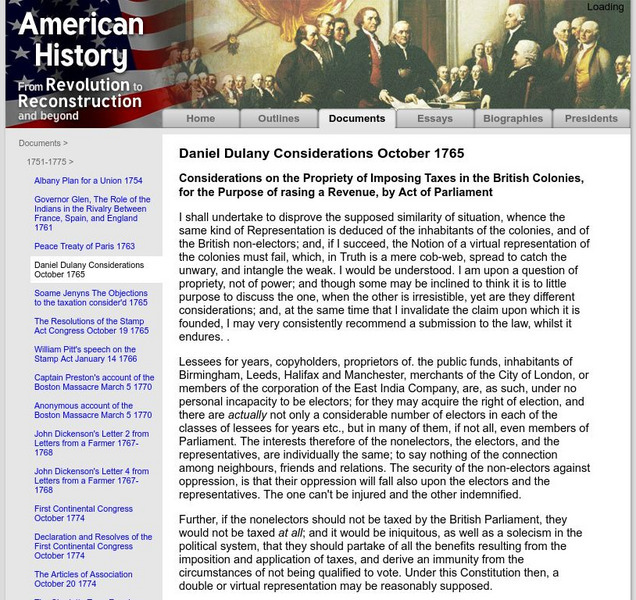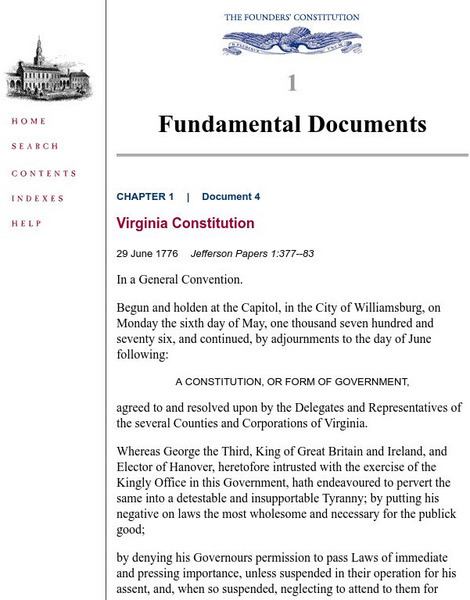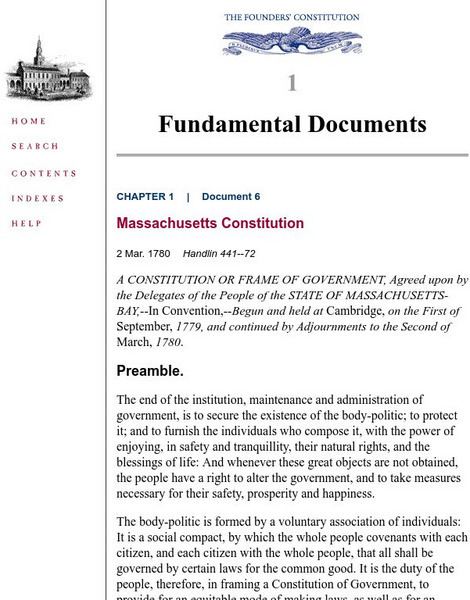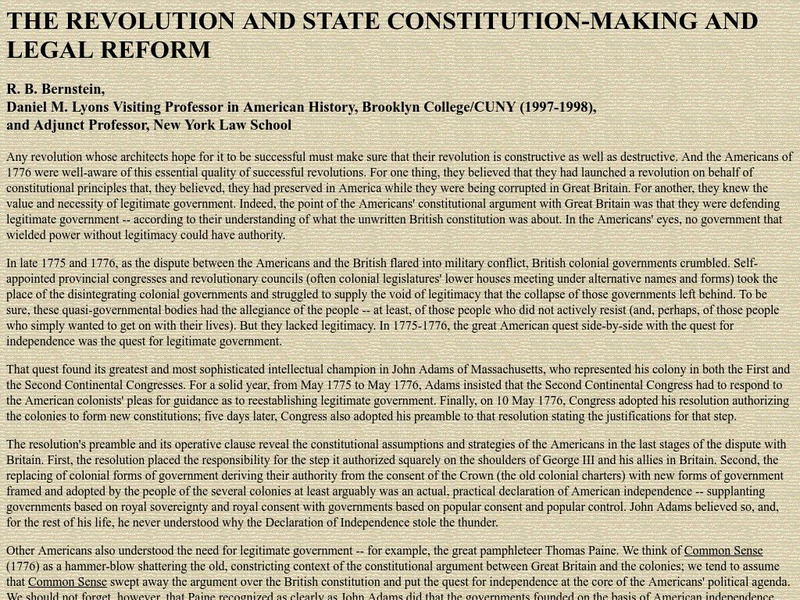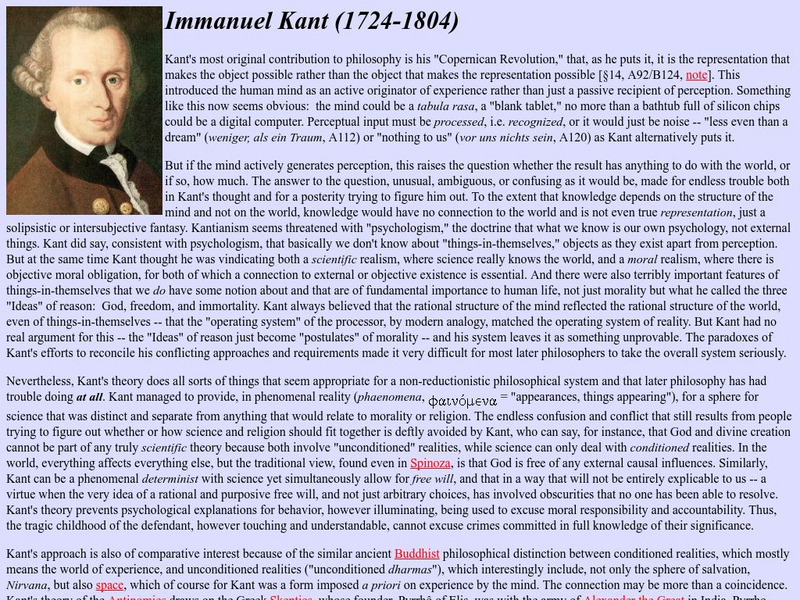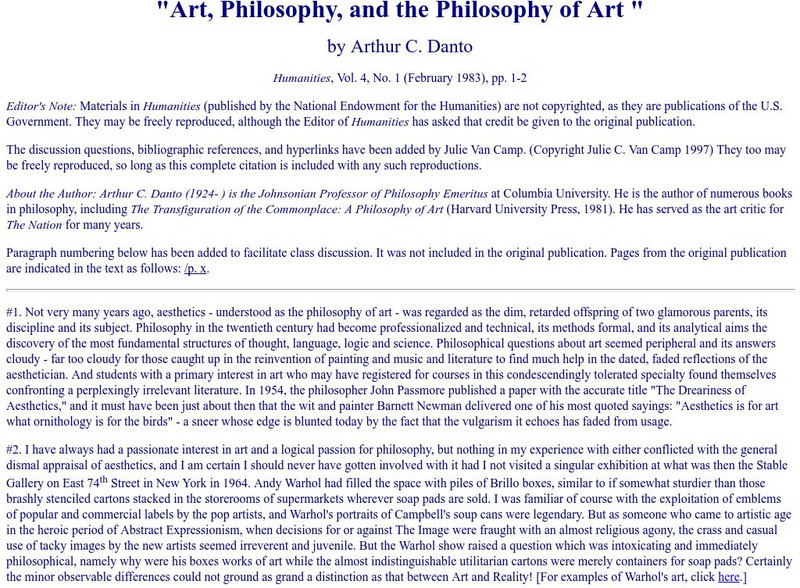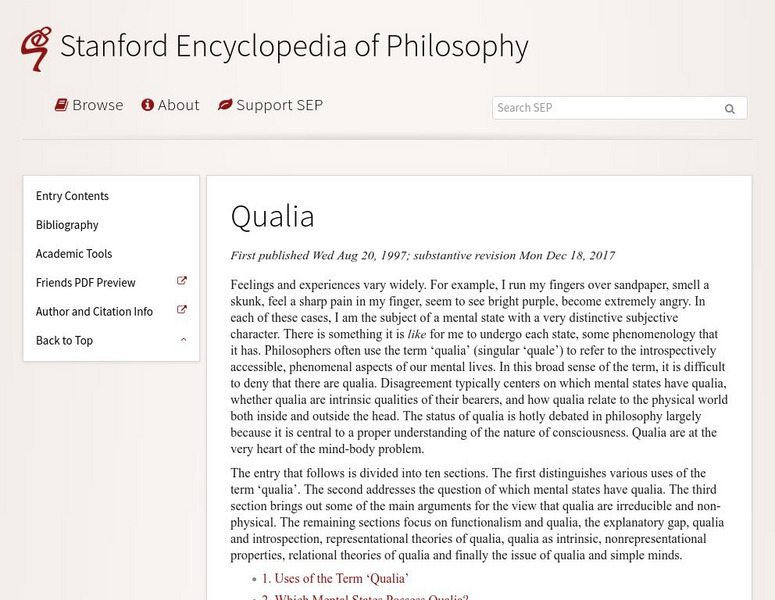Curated OER
Chinese Minority Cultures
Seventh graders identify the elements that characterize culture in literature.
Students analyze the representation of Chinese minority peoples
through textbooks. Students identify and interpret the differences among the people of China.
Curated OER
The Stamp Act/Taxation Without Representation
Fourth graders discuss the Stamp Act and the preamble. In this social science lesson, 4th graders examine protests and show that the colonists reacted to the Stamp Act by protesting. Students study various cartoons and state what the...
Curated OER
Introducing Models to Elementary School Students
Students explore the concept of creating models. In this model representation lesson, students are introduced to the idea of a model and discuss the differences between models and the actual object.
Curated OER
Cultural Representation in "Spellbound" Part 1
Students watch the film "Spellbound". They analyze concepts of how the media represents race. They discuss how the movie depicts race after the film.
Curated OER
Culture Representation in "Spellbound" Part 2
Students watch the film "Spellbound". They examine how the film represents race. They analzye contemporary media to examine how they represent race as well.
Curated OER
Who am I? Bookmaking
Students explore the process of bookmaking that has its origins from many different international cultures. The multicultural symbolism represented by the medium is utilized by students to expres their identity.
Curated OER
Equal Shares for Each Province
Students investigate fairness, equality, and representation in the Canadian Parliament. The concepts are explored within the context of equal distribution of boxes of cereal to various groups.
University of Groningen
American History: Documents: Daniel Dulany on Taxes
Contains original text of Daniel Dulany's arguments against the Parliament's right to tax the colonies for revenue.
University of Chicago
The Founders' Constitution: Virginia Constitution: 29 June 1776
The complete original text of the revolutionary state constitution of Virginia adopted in June 1776.
University of Chicago
The Founders' Constitution: Massachusetts Constitution: 2 March 1780
The complete, original text of the Massachusetts State Constitution as adopted in March, 1780.
PBS
Pbs Learning Media: The Right Amount of Cupcake Mix
In this video segment from Cyberchase, Bianca doubles the ingredients in a cupcake recipe that includes fractional amounts.
Michigan State University
Michigan State University: American Revolution: Revolution and State Constitution Making
A full-length essay on the formation of new state constitutions by the 13 newly independent states.
Friesian School
Friesian.com: Immanuel Kant (1724 1804)
This extensive site chronicles modern philosophy and the role of Kant in the movement. Excellent resource.
Other
Csu: "Art, Philosophy, and the Philosophy of Art"
Excellent introductory article by Arthur Danto defining "aesthetics." Site has helpful links throughout and great discussion questions at end of article. Danto bibliography included.
Hanover College
Hanover College: Use of Visual Information in Art
This site from Hanover College gives a tutorial on issues of visual representation, such as depth, perspective, texture, shadow, illusion. Begins at an introductory level. Numerous pictures.
PBS
Structure of Congress and the Legislative Process Lesson
This instructional activity explores the structure of Congress and the legislative process. There is an introduction, a research activity, an assessment, and a role play activity.
US Department of State
America.gov: Government of the People: The Role of the Citizen
A chapter taken from the U.S. State Department's "Outline of U.S. Government," that focuses on the foundation of American representative democracy. Provides comparison with other democracies, along with the essential role of the U.S....
Stanford University
Stanford Encyclopedia of Philosophy: Qualia
Extensive discussion of "qualia," the sense-data that inform perception. Considers the different meanings of the term and relates them to epistemological questions about mental states, theories of representation, and introspection....
Stanford University
Coherence Theory of Truth:stanford Encycl. Of Philosophy
Clear, concise introduction to various coherence theories of truth. Author explains several versions of the theory, the arguments for and against them, while avoiding too much philosophical jargon. Includes bibliography.
Annenberg Foundation
Annenberg Learner: Democracy in America: Legislatures: Laying Down the Law
This ambitious unit examines the various levels of legislature from federal to municipal, the wants of constituents versus what the legislators feel is right, and the need for compromise. Offers video, activities, and related resources.
National Council of Teachers of Mathematics
Nctm: Standards for School Mathematics
This standards-based NCTM website offers resources for teachers of mathematics for all grade levels, including interactive math tools, lesson plans, online resources, and the like.
PBS
Pbs Learning Media: Grubby's Wacky Worms
Wicked and Digit must solve a fraction problem in order to free the CyberSquad in this video from Cyberchase.
Digital History
Digital History: Representation: By State or by Population? [Pdf]
Read the opinions of some of the delegates to the Constitutional Convention in regard to the very thorny issue of how states would be represented in the national legislature. [pdf]
National Endowment for the Humanities
Neh: Edsit Ement: The Constitutional Convention of 1787
In this Curriculum Unit, students will consider "The Constitutional Convention of 1787" in 3 Lessons. The unit also includes worksheets and other student materials that can be found under the resource tab.





